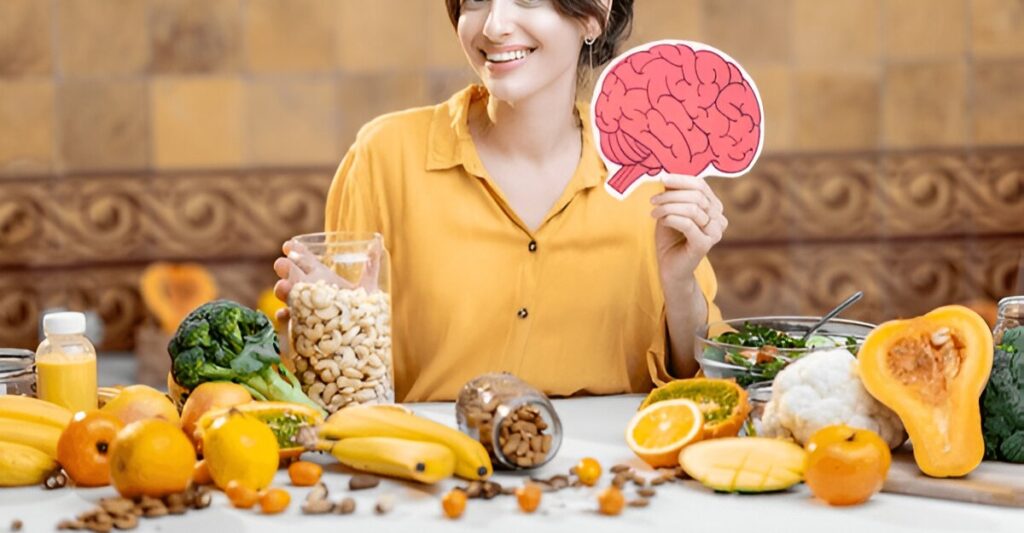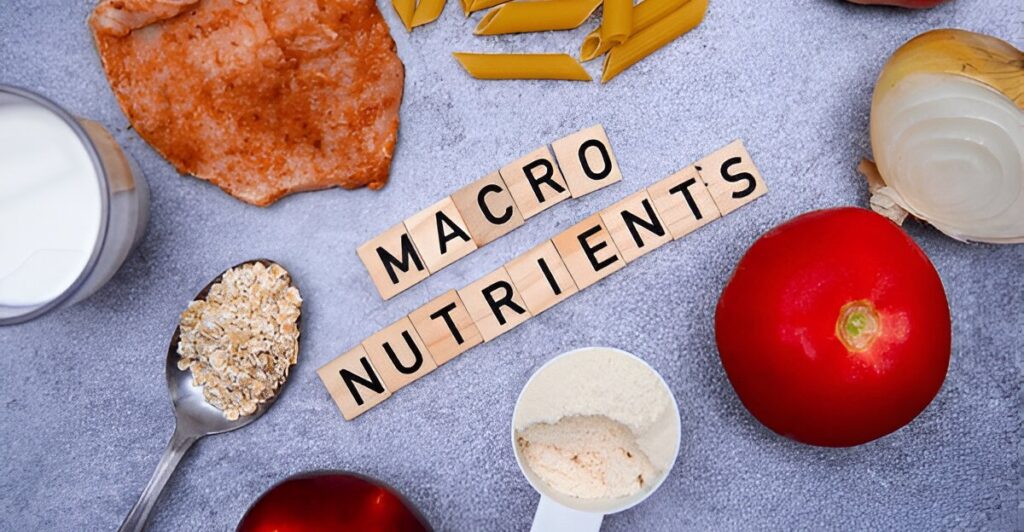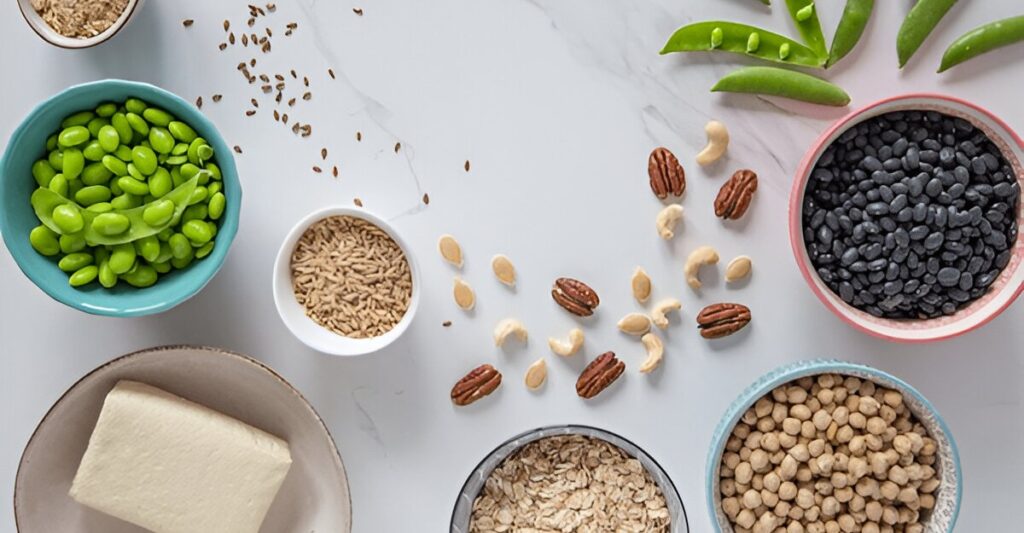Your brain is the command center of your body, and what you eat directly impacts its performance. From sharpening focus to boosting memory, foods that support brain function and memory can enhance cognitive health and protect against age-related decline. This guide explores the best brain-boosting foods, key nutrients, and practical tips to incorporate them into your diet for optimal mental clarity and long-term brain health.
Why Diet Matters for Brain Health
The brain requires a steady supply of nutrients to function at its best. A diet rich in antioxidants, healthy fats, vitamins, and minerals supports neuron health, improves blood flow, and reduces inflammation, all of which enhance cognition and memory. Research, including studies from the MIND diet, shows that specific foods can lower the risk of Alzheimer’s disease and improve mental performance. By prioritizing foods that support brain function, you can boost focus, retain information, and maintain cognitive vitality.
Key Nutrients for Brain Function and Memory
When choosing foods that support brain function and memory, focus on these essential nutrients:
1. Omega-3 Fatty Acids
- Role: Build brain cell membranes, reduce inflammation, and support memory.
- Sources: Fatty fish (salmon, mackerel), flaxseeds, chia seeds, walnuts.
- Goal: Include fatty fish 2-3 times weekly or daily plant-based omega-3s.
2. Antioxidants (Vitamins C, E, and Beta-Carotene)
- Role: Protect brain cells from oxidative stress and support cognitive longevity.
- Sources: Berries, citrus fruits, spinach, broccoli, almonds, sweet potatoes.
- Goal: Eat a variety of colorful fruits and vegetables daily.
3. B Vitamins (B6, B12, Folate)
- Role: Reduce homocysteine levels (linked to cognitive decline) and support neurotransmitter production.
- Sources: Eggs, fortified cereals, leafy greens, beans, salmon.
- Goal: Include B-rich foods daily, especially B12 for vegetarians/vegans.
4. Choline
- Role: Supports memory and neurotransmitter function (acetylcholine).
- Sources: Eggs, liver, soybeans, broccoli, peanuts.
- Goal: Aim for 425-550 mg daily (e.g., 2 eggs provide ~250 mg).
5. Polyphenols
- Role: Improve blood flow to the brain and protect against cognitive decline.
- Sources: Dark chocolate (70%+ cocoa), green tea, red grapes, blueberries.
- Goal: Include polyphenol-rich foods or drinks daily in moderation.
6. Magnesium
- Role: Supports nerve signaling and cognitive function.
- Sources: Nuts, seeds, whole grains, spinach, avocados.
- Goal: Target 310-420 mg daily, depending on age and gender.
Top Foods That Support Brain Function and Memory
Incorporate these brain-boosting foods into your diet to enhance cognition and protect memory:
- Fatty Fish: Salmon, sardines, and mackerel are rich in omega-3s, crucial for brain cell health.
- Blueberries: Packed with antioxidants and polyphenols to improve memory and delay cognitive aging.
- Leafy Greens: Spinach, kale, and collards provide B vitamins, magnesium, and antioxidants.
- Nuts: Walnuts and almonds offer omega-3s, vitamin E, and magnesium for brain protection.
- Eggs: A choline powerhouse, plus B vitamins for memory support.
- Whole Grains: Oats, quinoa, and brown rice provide steady energy and B vitamins for brain function.
- Avocados: Rich in healthy fats and magnesium to support blood flow and cognition.
- Broccoli: High in antioxidants, vitamin C, and choline for neuron health.
- Dark Chocolate: Contains polyphenols and flavonoids to boost brain blood flow (choose 70%+ cocoa).
- Green Tea: Offers caffeine and L-theanine for focus, plus polyphenols for brain protection.
Practical Tips for Incorporating Brain-Boosting Foods
Making foods that support brain function and memory a regular part of your diet is simple with these strategies:
1. Start Your Day with Brain Fuel
Blend a smoothie with spinach, blueberries, flaxseeds, and almond milk for a nutrient-packed breakfast. Or try oatmeal topped with walnuts and berries.
2. Snack Smart
Keep brain-friendly snacks like unsalted nuts, sliced veggies with hummus, or a small piece of dark chocolate on hand to stay sharp throughout the day.
3. Add Fish to Your Week
Plan 2-3 fish-based meals weekly, like grilled salmon with quinoa or sardines on whole-grain toast. For plant-based diets, use flaxseeds or chia seeds in smoothies or salads.
4. Go Green at Every Meal
Incorporate leafy greens into salads, stir-fries, or soups. A side of steamed broccoli or kale adds brain-boosting nutrients effortlessly.
5. Sip Brain-Healthy Drinks
Swap sugary sodas for green tea or water infused with citrus and berries. These provide hydration and cognitive benefits without excess sugar.
6. Batch Prep for Convenience
Prepare brain-friendly meals in advance, like a quinoa and black bean bowl with avocado or a veggie-packed egg muffin, to stay consistent.
Sample Meal Plan for Brain Health
Here’s a one-day plan featuring foods that support brain function and memory:
- Breakfast: Greek yogurt with blueberries, chia seeds, and walnuts (antioxidants, omega-3s, magnesium).
- Snack: A handful of almonds and an orange (vitamin E, vitamin C).
- Lunch: Grilled salmon salad with spinach, avocado, quinoa, and olive oil dressing (omega-3s, magnesium, B vitamins).
- Snack: Hard-boiled egg and sliced broccoli with hummus (choline, antioxidants).
- Dinner: Stir-fried tofu with kale, brown rice, and roasted sweet potatoes (B vitamins, magnesium, antioxidants).
- Evening Snack: A small square of dark chocolate (70% cocoa) and a cup of green tea (polyphenols, L-theanine).
Lifestyle Factors to Boost Brain Health
While foods that support brain function are critical, these habits amplify their effects:
- Exercise: Aim for 150 minutes of moderate activity (e.g., walking, yoga) weekly to improve blood flow to the brain.
- Sleep: Get 7-9 hours nightly to consolidate memories and clear brain toxins.
- Mental Stimulation: Engage in puzzles, reading, or learning new skills to keep your brain sharp.
- Stress Management: Chronic stress harms cognition. Practice meditation or deep breathing for 5-10 minutes daily.
- Hydration: Drink 8-10 cups of water daily to support brain function and focus.
Supplements: Are They Necessary?
Whole foods are the best source of brain-boosting nutrients, but supplements may help in specific cases:
- Omega-3 Capsules: Useful if you don’t eat fish regularly.
- Vitamin B12: Critical for vegetarians/vegans or those with absorption issues.
- Magnesium: Beneficial if dietary intake is low.
Consult a healthcare provider before starting supplements to ensure they’re needed and safe.
Common Mistakes to Avoid
When incorporating foods that support brain function and memory, steer clear of these pitfalls:
- Overloading on Processed Foods: Sugary snacks or fried foods increase inflammation, counteracting brain benefits.
- Skipping Variety: Eating the same foods daily may miss key nutrients. Rotate fruits, veggies, and proteins.
- Ignoring Hydration: Dehydration impairs focus and memory. Keep water handy.
- Relying Solely on Supplements: Foods provide a broader nutrient profile than pills. Prioritize diet first.
Long-Term Strategies for Brain Health
To sustain a brain-boosting diet:
- Plan Weekly Menus: Include a mix of omega-3s, antioxidants, and B vitamins for balanced nutrition.
- Shop Smart: Stock up on brain-friendly staples like berries, nuts, and whole grains.
- Cook at Home: Homemade meals ensure control over ingredients and minimize processed foods.
- Monitor Progress: Notice improvements in focus, memory, or energy, and adjust your diet as needed.
Conclusion: Fuel Your Brain for Life
Incorporating foods that support brain function and memory is a powerful way to enhance cognition, protect against decline, and boost overall well-being. By prioritizing nutrient-dense foods like salmon, blueberries, and leafy greens, and adopting supportive lifestyle habits, you can keep your brain sharp and resilient. Start small—add a handful of walnuts to your snack or swap coffee for green tea—and build from there. With consistent choices, you’ll nourish your mind for a lifetime of clarity and focus.
Take the first step today: Choose one brain-boosting food from this guide and enjoy it in your next meal.



